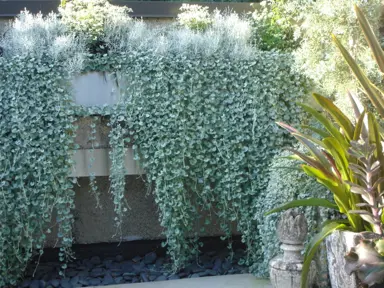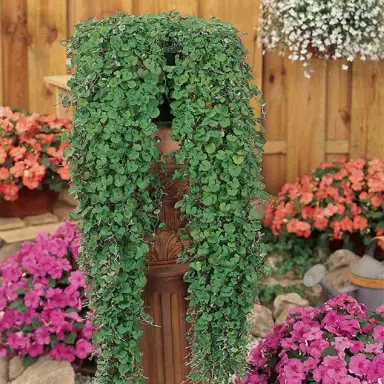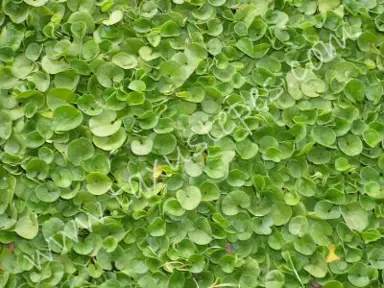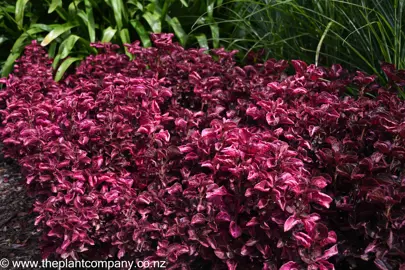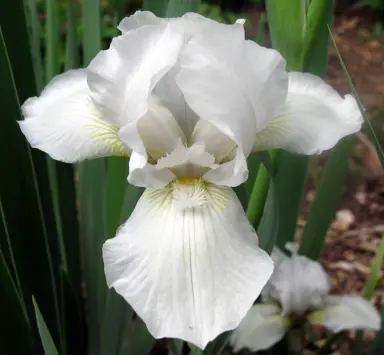Dichondra Silver Falls
Silver Falls Plant, Silver Ponyfoot
Dichondra Silver Falls, commonly known as Silver Ponyfoot, is an herbaceous perennial grown for its cascading foliage. This plant produces small and rounded, silver leaves on silver stems. It has a true cascading habit and will trail up to 50 cm and grows to just 10 cm tall. The Dichondra Silver Falls plant is an excellent choice for growing in a hanging basket, planting so it can trail over a wall, mass planting as a groundcover, or planting between rocks and paving stones.
